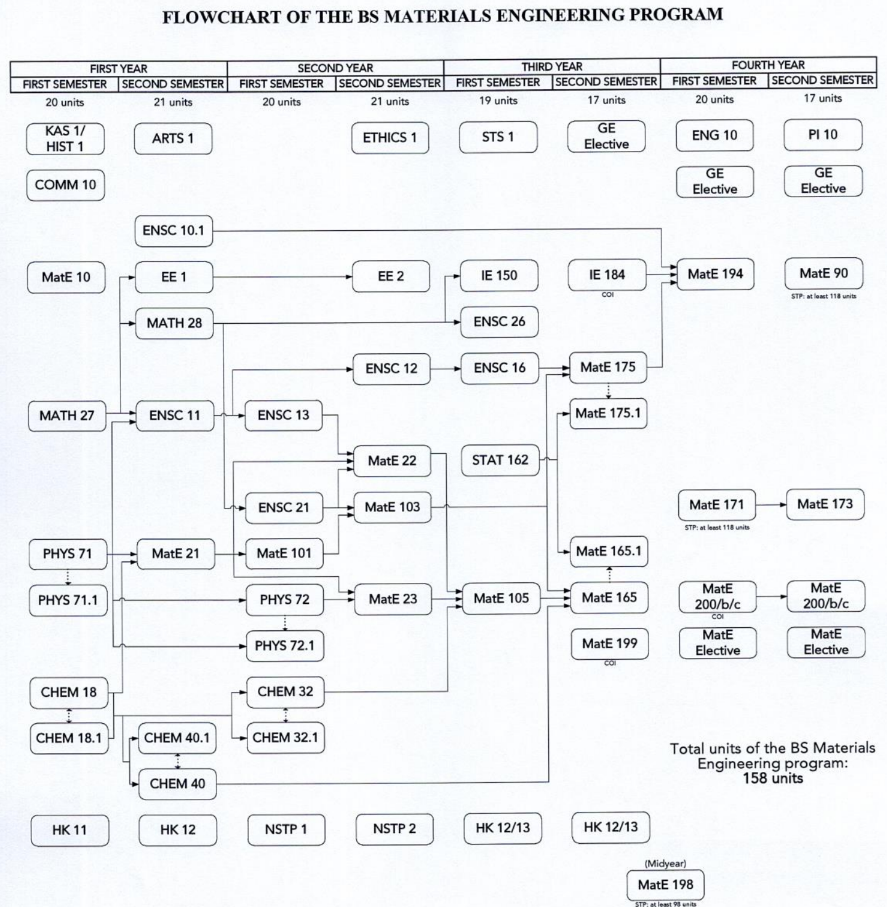Academics
BS Materials Engineering Program
The program aims to satisfy the requirements of accreditation and approving bodies which make graduates competitive locally and abroad. The BS Materials Engineering program intends to produce graduates who will:
- Manage and lead both public and private organizations in the research, development, and improved utilization and performance of existing materials, processing techniques, and characterization methods;
- Communicate technical and non-technical information effectively and apply new knowledge to support future-proofed national, regional, and local development plans;
- Collaborate in interdisciplinary, multidisciplinary, and multicultural service-oriented endeavors requiring professional knowledge of materials engineering; and,
- Engage in life-long learning to keep abreast of the current developments in materials engineering and other emerging related fields for the continued development of professional careers and skills.
A graduate of the BS Materials Engineering program should have the ability to:
a. Design materials and processing techniques that meet desired needs within realistic constraints and in accordance with technical and legal standards;
b. Evaluate techniques, skills, and modern engineering tools necessary for materials engineering practice;
c. Critique the effects and impact of materials engineering solutions in an economic, environmental, social, cultural, and political context;
d. Design and conduct research in materials engineering that positively impacts contemporary global issues;
e. Generate materials engineering innovations that upgrade locally available resources, promote Filipino culture, and contribute to nation building;
f. Effectively communicate materials engineering principles and solutions through various media with a wide range of audiences;
g. Perform efficiently, effectively, and ethically as leaders and team-players within a multidisciplinary environment in the practice of the materials engineering profession; and
h. Evaluate opportunities for lifelong learning and continuous professional growth in the field of materials engineering.
Updating Info
Sorry for the inconvenience. Come back again soon.

Updating Info
Sorry for the inconvenience. Come back again soon.
